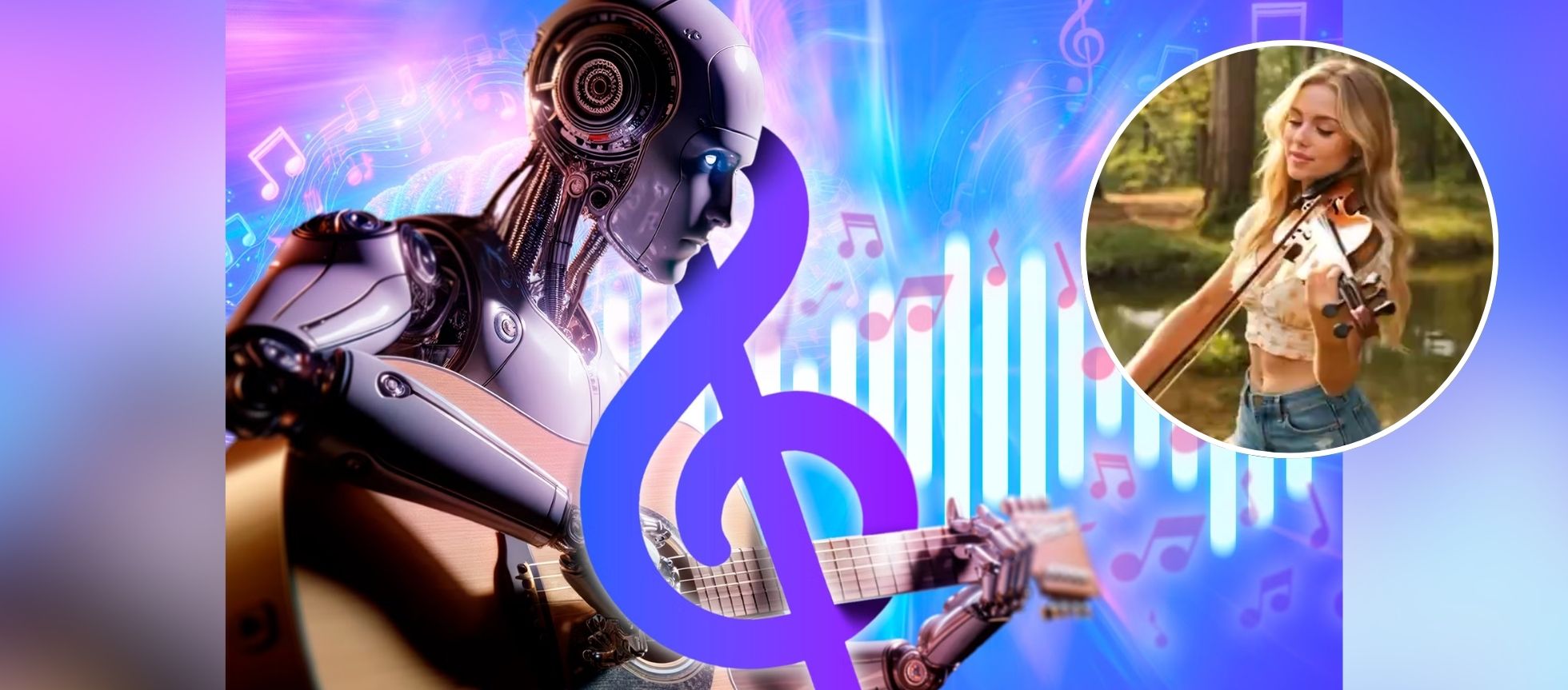The internet has discovered a new guilty pleasure: artificially intelligent country music that would make even the most rebellious honky-tonk singer blush.
A creator known as Beats By AI has been churning out risqué country tracks that are spreading like wildfire across social media platforms. The most notorious of these songs, “Country Girls Make Do,” has accumulated millions of streams on Spotify and YouTube, despite—or perhaps because of—its scandalous content that begins innocently enough with fiddles and guitars before taking a decidedly adult turn.
The track starts with what sounds like a traditional country tune, complete with toe-tapping rhythms and twangy instrumentation. But listeners are in for a surprise when the singer announces she is “horny as a b**ch in the country heat” and proceeds to describe agricultural activities that would never appear in a farming manual.
The deliberately outrageous nature of these songs has sparked multiple viral trends on TikTok. In one popular challenge, users trick their partners into dancing to the explicit tracks. Another trend involves young people playing the songs for unsuspecting relatives while recording their bewildered reactions.
“Is this for real?” one horrified grandmother asks in a widely shared video.
The answer is complicated. These songs are created entirely by artificial intelligence using platforms like Suno and Udio, where users input prompts and the software generates everything from lyrics to vocals to instrumentals to cover art. No traditional musical expertise is required, and the creative possibilities are limited only by the user’s imagination.
Beats By AI has become particularly prolific, releasing one provocative track daily. Other songs in the catalog include titles so explicit they can barely be mentioned in polite company, such as “The Best Head” and “I Pledge Allegiance to that A$$.”
But AI-generated music extends far beyond crude parody. Aventhis, which uses artificial intelligence for both instrumentation and vocals while maintaining a more serious tone, attracts over 650,000 monthly listeners on Spotify.
The Velvet Sundown, a fully AI-generated act producing 1970s-inspired rock, draws nearly 300,000 monthly listeners. Both have released three albums this year alone—a pace that would exhaust any human musician.
The rapid rise of AI country music appears to tap into a generational divide within the genre itself. While Nashville record labels have traditionally maintained strict control over country music’s style and sound, keeping it relatively conservative, the genre’s expanding Gen Z audience has different sensibilities and expectations.
“I’ve been waiting for this to happen,” says Daniel Gervais, a professor of intellectual-property law at Vanderbilt University. He views these AI songs as the beginning of a transformation where listeners create the content they desire rather than accepting whatever record companies produce. Anyone with time and inclination can now generate music tailored to their preferences or designed to challenge industry conventions.
Not everyone is singing along, however. Major artists including Sir Elton John, Dua Lipa, and Ed Sheeran have voiced concerns about AI companies using their work to train models without proper compensation. Streaming platforms face their own challenges with fraudsters uploading AI-generated tracks and using bots to artificially inflate play counts, collecting royalties in the process.
Both Deezer and Spotify have taken action, removing such content from official playlists and recommendations. In September, Spotify purged 75 million AI-generated songs from its platform, citing “bad actors” flooding “slop into the ecosystem.”
Yet despite industry resistance, consumer attitudes suggest AI music is here to stay. According to data firm Luminate, one in three American listeners feels comfortable with AI creating instrumental music. Nearly 30% accept AI-written lyrics, and more than 25% don’t object to completely AI-composed and AI-performed songs.
The comment section under “Country Girls Make Do” on TikTok reveals a surprising degree of enthusiasm. “I take back everything I’ve [said] about AI art,” one person wrote. “Let it cook.”
Whether this represents the future of music or merely a passing novelty remains unclear.


